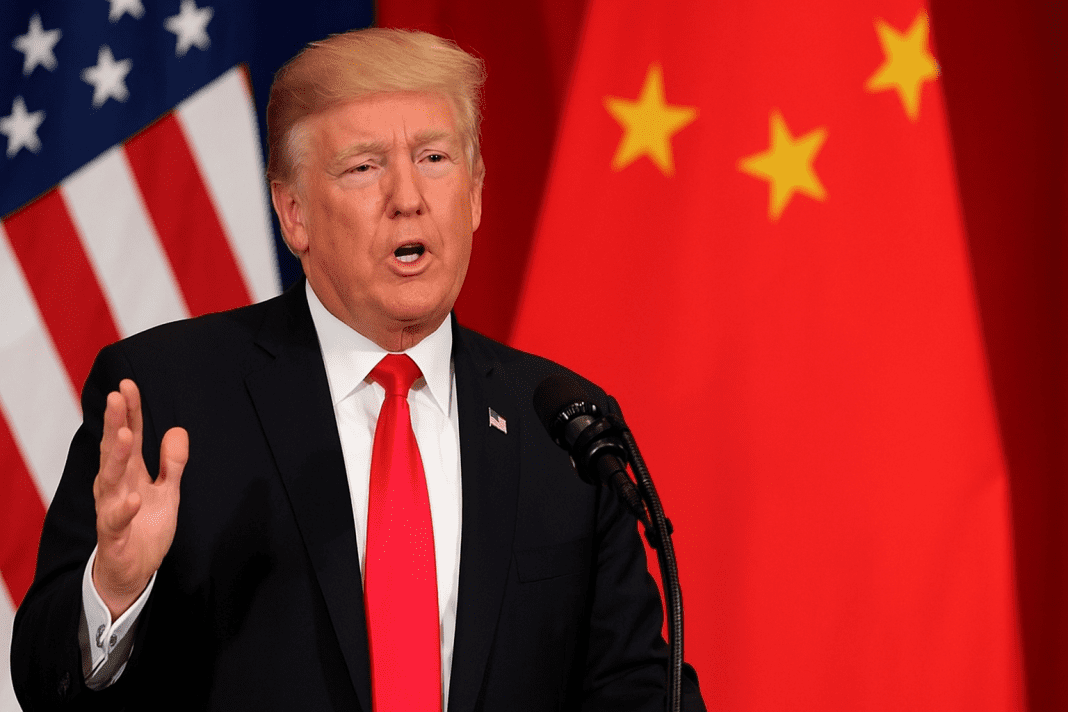U.S. President Donald Trump has said that one of his top foreign policy goals is to reduce nuclear weapons around the world — a mission he called denuclearization.
Trump Calls for Global Denuclearization, Says World Has “More Than Enough”
Speaking during a White House livestream, Trump explained that he has already discussed denuclearization with both Russia and China, urging them to join the United States in cutting down nuclear stockpiles.
“We could blow up the world 150 times. There’s no need for this,” Trump said. “Denuclearization would be a great thing.”
The President argued that the world has more nuclear weapons than it could ever use and that reducing them would make everyone safer. He said the United States remains first in nuclear capability, followed by Russia and then China — but insisted that too much destructive power only increases global danger.
Trump said he had spoken with Russian President Vladimir Putin and Chinese President Xi Jinping about working together toward denuclearization. He added that all three countries could focus more on helping their people instead of spending trillions on weapons.
“Everybody would like to spend all that money on other things, on things that actually help people,” Trump said.
He emphasized that the goal of denuclearization is not weakness, but peace. According to him, cutting down nuclear arsenals would allow countries to invest in healthcare, education, and development instead of fear and destruction.
Conversations with Putin and Xi: Seeking Common Ground
Trump revealed that his recent meeting with Chinese President Xi Jinping in South Korea focused heavily on denuclearization. Both leaders, he said, agreed that the current level of nuclear weapons poses serious risks to global safety.
He also said that Vladimir Putin showed openness to discussing denuclearization, recognizing the economic and humanitarian benefits of reducing arms spending. Trump noted that Russia, like China and the U.S., could benefit from redirecting defense budgets toward its citizens.
“I’ve spoken to President Putin about it. I’ve spoken to President Xi about it. Everybody would like to spend that money on people — things that benefit them now,” Trump stated.
$100 billion at stake: U.S. Supreme Court to rule on legality of Trump-era emergency tariffs
Trump added that under his leadership, the world was closer to peace than before, saying many conflicts had calmed down. Referring to the Russia-Ukraine war, he called it the only major conflict still “raging” and expressed hope that it could also be settled peacefully.
“We had a lot of wars raging that people didn’t know about. Now they’re not raging anymore. We have one left, and we’re hopefully going to get that taken care of,” he said.
Trump’s remarks underline his desire to be seen as a peacemaker, not just a military leader. His calls for denuclearization show an effort to balance U.S. power with a sense of responsibility — aiming to prevent an arms race while maintaining global security.
Denuclearization Efforts Face Challenges Amid Nuclear Drills and Tensions
Trump’s appeal for denuclearization comes at a tense time. Recently, Russia conducted major military drills simulating the use of nuclear weapons with its Yars intercontinental missile system.
The European Union quickly condemned the exercises, urging Moscow to stop what it called “nuclear intimidation.” The EU also expressed alarm after President Putin hinted that Russia might resume nuclear testing, breaking a decades-long pause.
In response, Trump announced that the United States might also resume nuclear testing for the first time in 30 years. He said Washington “won’t be the only country not doing it,” referring to Russia and China’s renewed testing activities.
According to satellite imagery from 2023, all three countries — the U.S., Russia, and China — have increased activity at their nuclear test sites, sparking global concern that a new arms race could begin.
Despite this, Trump continues to stress his commitment to denuclearization, claiming it remains one of his main foreign policy goals. He insisted that reducing weapons would not make the U.S. weaker but would instead bring greater safety to the entire planet.
“We’re first in nuclear capability — by far. But we don’t need more. What we need is peace,” Trump said.
Experts say Trump’s comments mark one of the most direct pushes for denuclearization by a U.S. president in years. His repeated discussions with Putin and Xi reflect a potential shift toward using diplomacy rather than competition to solve one of the world’s greatest security challenges.
As tensions continue and nuclear drills make headlines, Trump’s message remains clear — denuclearization is not just about politics or power; it’s about ensuring the world never comes close to “destroying itself 150 times.”
